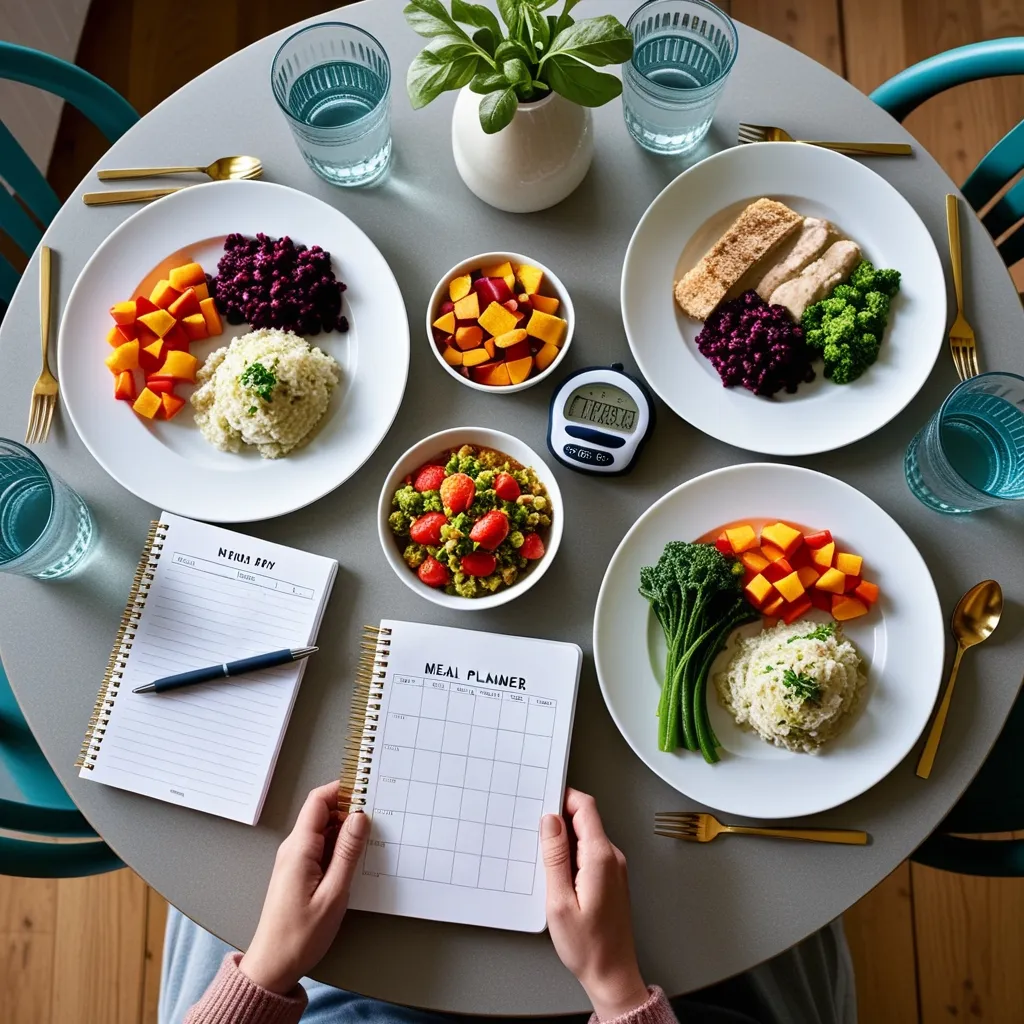The Art of Meal Portioning: Keeping Overeating at Bay, Casually
Being mindful of meal portions is super important for staying healthy. You might not realize it, but eating the right amount can make a world of difference. It helps dodge overeating and all those annoying health risks that come with it. Here’s a breezy guide to perfecting meal portioning, so you can keep your diet in check without a fuss.
Understanding what counts as a serving size is step one. It’s surprising how many of us misjudge this. A serving of pasta should be about as much as a single scoop of ice cream. Meat, fish, or poultry? Imagine a deck of cards or your palm without fingers. Using common items to visualize serving sizes makes it so much easier to eyeball how much food you’re actually munching on.
An easy hack for portion control is using smaller dishes. Studies show that smaller plates and bowls can trick your brain into believing you’re eating more, which means fewer calories and feeling full sooner. It’s like a simple magic trick but with dishes.
Another great strategy is meal planning. You know how it is - if you don’t plan ahead, you might end up with some unhealthy, last-minute choices. By planning your meals, you’re ensuring that you prepare just the right amount of food and make healthier decisions. You can jot down your weekly plan or use meal planning apps. It helps steer clear of unhealthy temptations and keeps you on track with your health goals.
Next up, eating slowly and mindfully. It’s a game-changer. Eating too fast means your brain doesn’t get the memo that your stomach is full until it’s too late. Taking your time with meals allows you to feel satisfied with less food. This means fewer chances of overeating. Try putting your fork down between bites or even setting a timer for a more mindful eating pace.
Distractions during meals can make us eat more without even realizing it. Whether it’s the TV, computer, or phone, distractions make it easy to overeat. Turn off the screens and focus on your food. Without those distractions, you can better notice when you’re full and avoid unnecessary extra bites.
Tracking what you eat is another beneficial habit. Food diaries, journals, or diet tracking apps are awesome tools for keeping tabs on your portion sizes. Monitoring your intake can help you spot unhealthy eating patterns so you can tweak things as needed to avoid overeating.
What you eat matters just as much as how much you eat. Foods high in protein help keep you full longer, reducing the urge to overeat. Kicking off your day with a protein-packed breakfast, such as eggs, helps control hunger hormones. On the flip side, high glycemic foods like white bread or candy cause blood sugar spikes and crashes, making you hungrier. Instead, choose foods with lower glycemic indexes like beans, oats, and brown rice to keep your blood sugar steady and fend off overeating.
The company you keep while eating also influences your habits. Dining with friends or family who have health goals similar to yours helps maintain your portion control. Studies show people often match the portion sizes of those they eat with, so eating with health-conscious companions can help you stay on track.
Restaurant portions are notoriously large, making it easy to lose control. To manage this, think about sharing a dish with someone or asking for a to-go box right away. You can also opt for smaller menu items like appetizers to keep your portions reasonable.
Snacking can be a sneaky culprit when it comes to overeating. Portioning your snacks into small containers or bags helps control how much you’re eating. Stick to healthy options like nuts, fruits, or yogurt. This way, you won’t find yourself mindlessly munching through an entire bag of chips.
Liquid calories are often overlooked but can contribute a lot to daily calorie intake. Sodas and fruit juices are especially sneaky. Instead, hydrate with water, herbal teas, or any low-calorie drinks. Staying properly hydrated also helps you avoid confusing thirst with hunger.
Making portion control part of your lifestyle is key. It’s not a temporary fix. Consistently practicing these tips helps develop long-term healthy habits. It’s not solely about eating less; it’s about making better, balanced choices.
To wrap it up, mastering the art of meal portioning is a cornerstone of a healthy lifestyle. By knowing serving sizes, using smaller dishes, planning meals, eating mindfully, and choosing the right foods, you can keep overeating in check. These small adjustments can have a big impact on your overall health and well-being.






